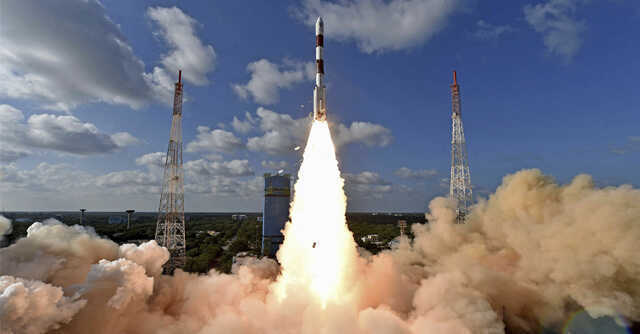
India is now home to more than 100 space startups


The number of startups in the rapidly-growing Indian space sector has more than doubled over the past year, shows data from the Economic Survey 2022.
The total number of space startups in the country has crossed 100 with 47 space technology startups being established in the country in 2021, up from 21 in 2020. In 2019, there were only 11 new startups added in the space sector.
New policies from the Indian government in the space sector coupled with participation from the private sector have been the key factors behind the growth of space startups in the country, according to the Economic Survey 2022. “With these recently undertaken policy initiatives and private sector participations, the Indian space sector is expected to capture a larger share of the global space economy, which was close to $447 billion in 2020. At present, India accounts for only about 2 per cent of the space economy, much behind the major players--the US and China,” the survey said.

The Survey acknowledged, though, that India still ranks far behind mature space economies such as the US and China. It stated that as of now, India only accounts for 2 percent of the global space economy, which can grow steadily in the coming years as investments from private Indian corporations as well as foreign bodies come in.
In an interview on January 17, Lt Gen (Retd) Anil Kumar Bhatt, director general of the Indian Space Association (ISpA), an industry body, told Mint that through 2022 the Indian government is expected to introduce and expand three policies as part of its Space Activity Bill — Space Communication, Remote Sensing and Transfer of Technology.
Each of these policies were first introduced in 2020 and are directed at helping private companies offer communication services, satellite-based data and analytics services, and use resources owned or governed by the Indian government to build their own products and services, respectively.

The Bill, according to Bhatt, is also likely to lay down conditions for foreign direct investments (FDI) in the Indian space sector, which could help Indian startups attract foreign investments. Startups and experts in the space sector have often said that lack of funding is affecting their ability to match global competitors.
That said, this is expected to be a big year for Indian space startups. Private entities Skyroot Aerospace and Agnikul Cosmos are both slated to launch their first, indigenously developed rockets later this year. While Skyroot plans to host only one launch later this year of its Vikram-I rocket, Agnikul Cosmos is targeting at least two launches of its rocket— Agnibaan — by the end of this year.
“The numbers showcasing the growth in space startups is promising from an investor standpoint, and lays the groundwork for larger investments to finally come in this year. VCs in India will also follow this space closely, and may invest accordingly. A number of these startups are also at very early stages and offer repetitive services, so some of them will fail. Investors will look more carefully at India’s space startups and invest in businesses that are already maturing beyond the initial funding stages. The space communications and remote sensing categories are most likely to attract the highest investments,” said Chaitanya Giri, consultant, Research and Information System for Developing Countries (RIS).

Other startups in the space technology domain are also expected to make moves through 2022. Pixxel, a space satellite imaging and data analytics startup, may launch the first three of its 36 imaging satellites this year. Bengaluru-based Bellatrix Aerospace, on the other hand, is expected to launch its hall-effect thruster for small satellites aboard a European space mission in mid-2022.
